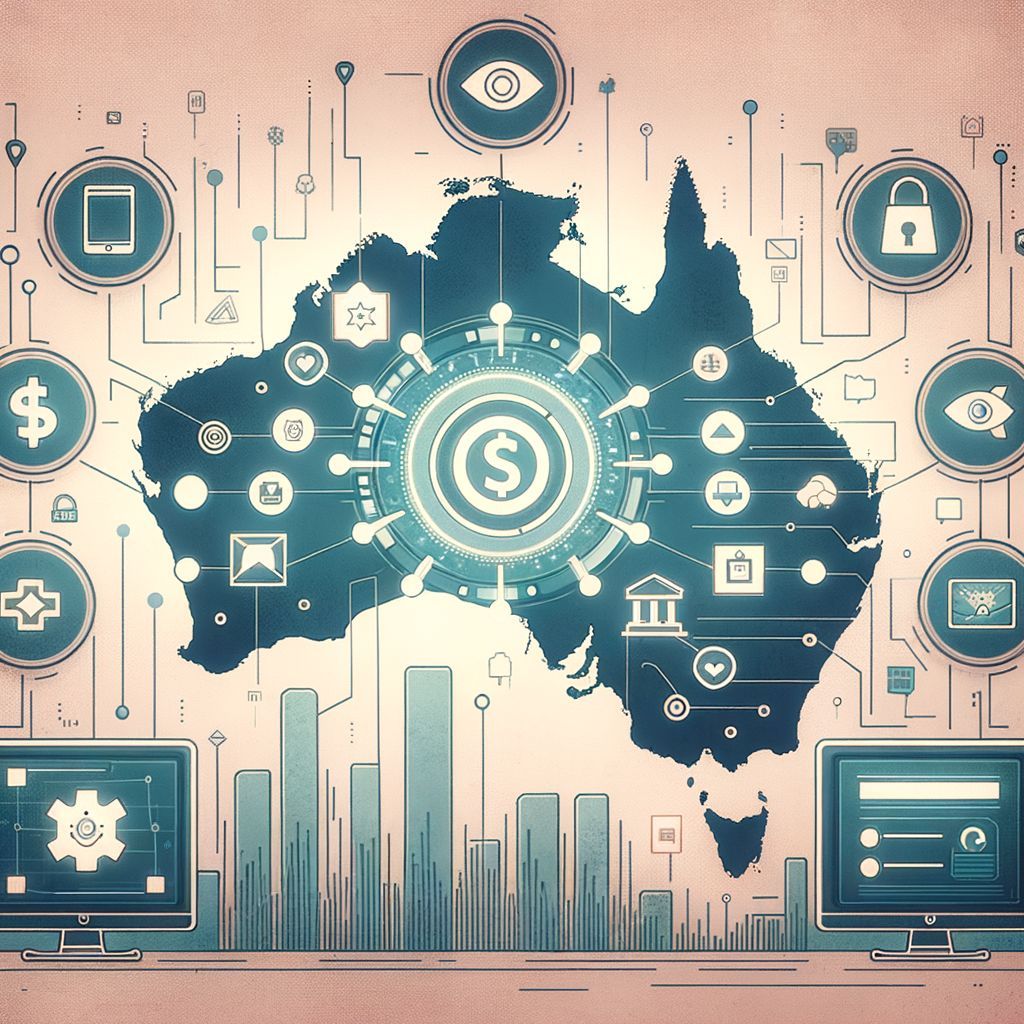

Image by DALL·E Pic: Midjourney
Editors' Note: Many Fast News images are stylised illustrations generated by Dall-E. Photorealism is not intended. View as early and evolving AI art!


Adobe and Intuit Mailchimp reports at odds about consumer trust in AI
Two new vendor-led reports into the consumer trust in Australia from Adobe and Intuit Mailchimp have thrown up somewhat contradictory views of the value customers see in the use of personalisation and AI in marketing and engagement right now.
The latest Adobe Future of Trust Study found 66% of people in Australia and New Zealand are optimistic about the benefits of generative AI, believing it will make it easier to find information. Additionally, 55% see generative AI enabling them to be productive and accomplish more.
Yet on the flip side, 45% are concerned generative AI will create inaccurate information that will be taken as trustworthy.
Importantly, 91% of respondents said they consider the credibility of an online source before they decide to trust it or share the content with others. The majority (77%) also said it's becoming difficult to verify whether the content they consume is trustworthy. Notably, 38% have seen suspected misinformation posted or shared online by someone they know in the past six months.
Relatedly, 87% of respondents believed it was essential they have the right tools to verify if online content is trustworthy. In addition, 81% of Australia and New Zealand respondents agreed it is important to know if the content they are consuming is generated using AI. Nearly one-third (32%) have stopped or curtailed their use of specific social media platforms due to misinformation.
In addition, 39% of people believe images and video content have the highest risk of being altered to create misinformation.
The big caveat here on the Adobe findings is usage. Only 9% of people said they use generative AI regularly today, while 63% plan on using it more in the year ahead.
The Adobe study was produced with Advanis and based on 1,005 responses from Australia and New Zealand in a global study with a total of 11,190 responses. All survey respondents were 18 and older and data was collected in March 2024.
A second report released last week, this time from Intuit Mailchimp, also explored consumer trust in the face of growing personalisation, ongoing email-based engagement, and dived into what personalisation is valued the most.
Similarly to Adobe, it found the rise of global misinformation has seen 34% of Australian consumers trusting brands less, compared to 18% who trust brands more. But again, transparency plays a huge role in whether brands are trusted or not: The report found 62% of the Australians who trust brands less said transparency around a company's actions - whether purpose or price hike related - can help rebuild trust.
According to the Brand Trust in the Age of Information Overload, 46% of Australian consumers need to trust and connect with a brand before buying from them. The brand qualities most important to customers in Australia include ethics and values that match the consumers ethics and values (36%), followed by the fact a company is locally based (34%). Three in 10 Australian consumers also said a company with a strong brand identity visually, written, and in substance is a key brand quality.
Intuit Mailchimp's report additionally looked at how to make trust last, determining a major factor is understanding your audience.
Price is an inevitable second factor. When asked about brand behaviour during the cost-of-living crisis, 68% of Australian surveyed respondents said they had stayed loyal to brands who have lowered and/or locked their prices in the face of inflation. Even so, 65% of Australians agreed they are looking for cheaper alternatives to beloved brands.
Loyalty is also playing out in regards to whether brands are transparent about price rises: 65% of consumers in Australia are less likely to stay loyal to a brand that increases its prices discreetly. Meanwhile, 53% of Australian respondents would stay loyal to a brand if price rises were communicated openly.
Data sharing was also scrutinised in the report. Intuit Mailchimp found 62% of respondents are happy to share their personal data so long as they can see more value/personalisation. In fact, 35% of Aussies see the value in personalisation and believe it stops them from 'missing out' on products, trends and deals. This number was highest for 18-to-24-year-olds (55%) who are more optimistic than other age groups about how handing over their data will make their future lives easier. In all age groups together, 49% believe the future of personalisation means the right products and services will come directly to them.
More than half are open to receiving targeted brand recommendations based on their behaviour, specifically after shopping in-person (60%), on a website (58%) or on a search engine (58%). But it's not just about product recommendations. One in four Australian shoppers want to see more personalised brand marketing campaigns.
This is especially at the start of a relationship, with 62% suggesting a discount code or exclusive/subscriber-only offer is an effective ice breaker. One in four also find a welcome email that outlines the brand's values to be an effective ice breaker. By contrast, only 19% of Australian consumers found humour to be an effective ice breaker to start a brand-consumer relationship.
When it comes to engaging with customers via email, personalised content is the most popular form of personalisation (60% of Australians). This was followed by limited and exclusive stock items (43%). Meanwhile, 49% of respondents say repetitive or unimaginative emails drive them to unsubscribe, followed by unsubstantiated claims about brand purpose (43%) and emails that are not viewable on devices (43%). The number of emails the consumer will tolerate per brand per week before they unsubscribe is six.
On the AI front, 40% of Aussies said they are comfortable with AI being used to support human-made content. Additionally, 32% are comfortable with AI-made content with extensive human input and oversight. However, there is still a strong affinity for human-made communications, with over half (52%) of consumers craving human-made brand communications.
The Intuit Mailchimp report was based on interviews conducted online by Sapio Research in February 2024 using an email invitation and an online survey. The survey was conducted among 10,000 consumers in nine countries including 1,500 in Australian consumers.
Partner Content from Salesforce
A Guide to Personalised Marketing That Keeps Customers Engaged
Customer Service Makes a Strategic Shift for ANZ Organisations










